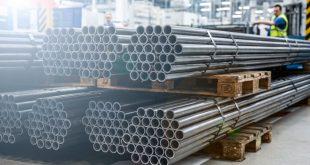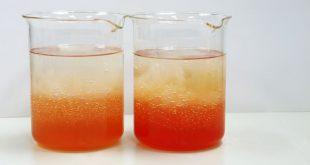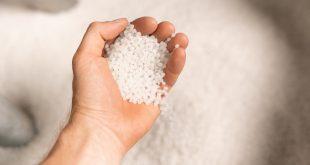Tube drawing is a critical manufacturing process that creates precise, high-quality metal tubes used in everything from automotive parts to construction materials. The process transforms stock materials into finished tubes with precise dimensions. The starting materials are typically steel hollow …
Read more »Chemische Werke Kluthe GmbH
Which detackification agents are used in paint application processes?
Coagulants cause coating particles in wastewater to join together into micro-flocs and allow them to be separated during further treatment. Read here about where wastewater is generated during painting processes, how detackification works, what requirements detackification agents must meet, and …
Read more »What Is Flocculation?
Everything You Need to Know About the Process Flocculation is a process in which very small solid particles, finely dispersed in a liquid, clump together into loose aggregates. The fluid and flocs can then be separated with minimal effort. Read …
Read more »Overview of CO2 Binding Options
Since the mid-19th century, carbon dioxide levels in the atmosphere have steadily increased. With industrialization and rising carbon dioxide emissions, concentrations have surged from an average of 280 ppm (parts per million, a unit measuring the concentration of gases in …
Read more »Effective Machine Maintenance
« The Importance of Surface Treatment for Equipment Efficiency » In common terminology, the phrase “maintenance and servicing of machinery and equipment” is frequently used. Strictly speaking, servicing is a broader category that includes maintenance. The latter ensures continuous trouble-free …
Read more »Plastic Recycling in Chemistry
« What Methods Are Used? » Plastics are widely used as packaging materials, insulators, components in various machines and devices, and as coating agents. Unfortunately, their widespread use has led to increasing environmental concerns as they are now frequently found …
Read more »What Are the Main Greenhouse Gases—and Which Ones Are Especially Relevant in the Chemical Industry?
The accumulation of greenhouse gases in the atmosphere is the main driver of global warming. The consequences of this include droughts, heavy rainfall, storms, and flooding. Melting ice masses also raise sea levels. But why exactly are greenhouse gases harmful? …
Read more »Recycling in the Future
Emerging Trends in Reuse and Recovery Global raw material reserves are finite. Humanity consumes more resources than nature can regenerate. At the same time, so much waste is generated that the environment is overwhelmed by the burden. This situation calls …
Read more »Reconditioned Barrels
« How Reconditioned Barrels Help Reduce CO2 Emissions » Barrels are a widely used packaging solution for chemicals consumed throughout the industrial sector. Lubricants, cleaning agents, corrosion protection products, paints, and coatings can be safely stored and transported in them, …
Read more »What Is Decarburization?
Decarburization refers to the reduction of carbon content in molten or solidified alloys. This process commonly occurs during the production and processing of steel but can also affect cast iron when exposed to elevated temperatures. This article explains the role …
Read more » Kluthe Magazine
Kluthe Magazine









